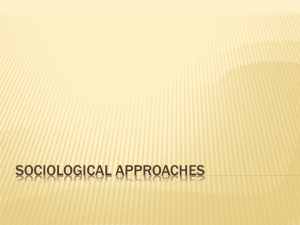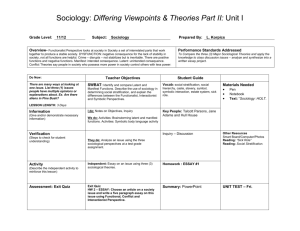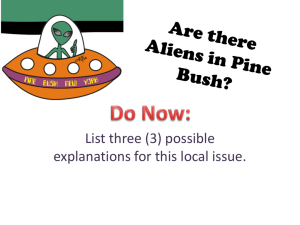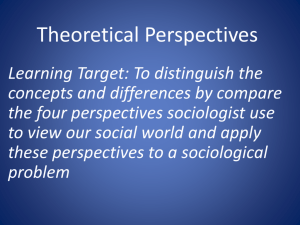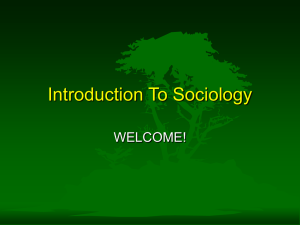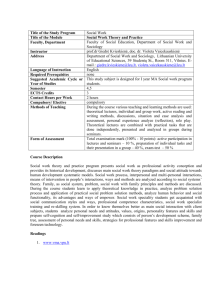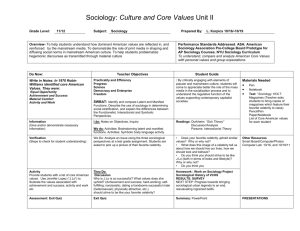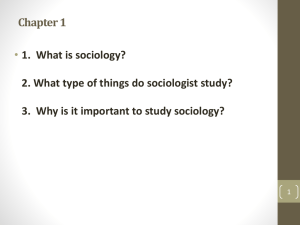Sociology – Week 1 Notes DAY 1: Intro to Perspective Basic
advertisement
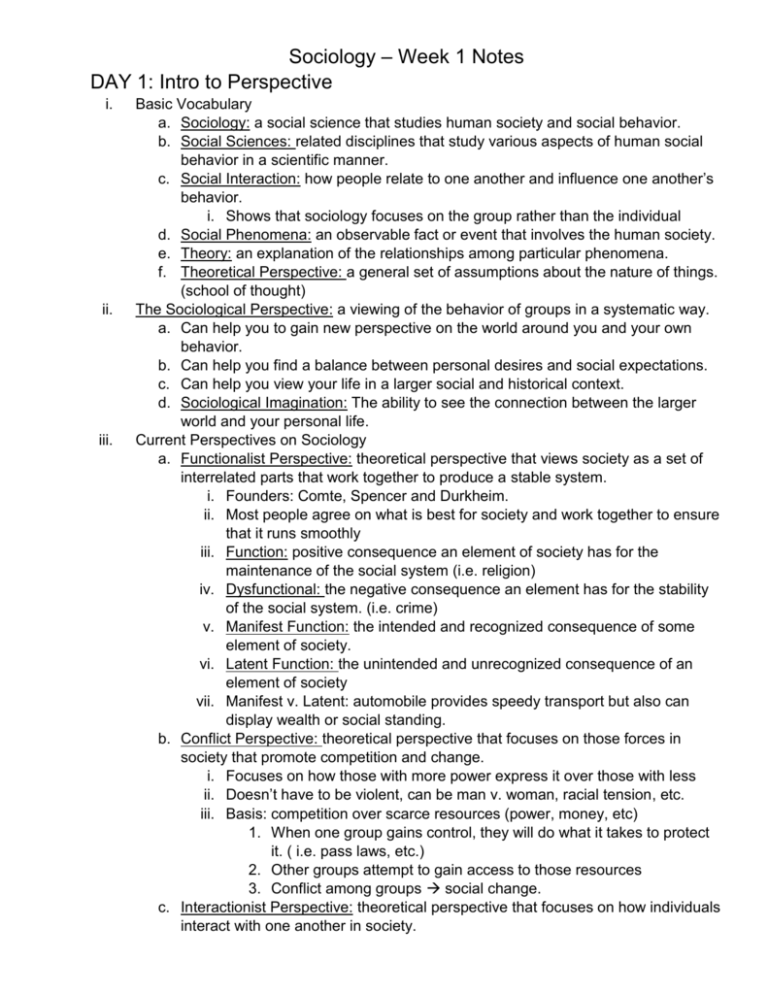
Sociology – Week 1 Notes DAY 1: Intro to Perspective i. ii. iii. Basic Vocabulary a. Sociology: a social science that studies human society and social behavior. b. Social Sciences: related disciplines that study various aspects of human social behavior in a scientific manner. c. Social Interaction: how people relate to one another and influence one another’s behavior. i. Shows that sociology focuses on the group rather than the individual d. Social Phenomena: an observable fact or event that involves the human society. e. Theory: an explanation of the relationships among particular phenomena. f. Theoretical Perspective: a general set of assumptions about the nature of things. (school of thought) The Sociological Perspective: a viewing of the behavior of groups in a systematic way. a. Can help you to gain new perspective on the world around you and your own behavior. b. Can help you find a balance between personal desires and social expectations. c. Can help you view your life in a larger social and historical context. d. Sociological Imagination: The ability to see the connection between the larger world and your personal life. Current Perspectives on Sociology a. Functionalist Perspective: theoretical perspective that views society as a set of interrelated parts that work together to produce a stable system. i. Founders: Comte, Spencer and Durkheim. ii. Most people agree on what is best for society and work together to ensure that it runs smoothly iii. Function: positive consequence an element of society has for the maintenance of the social system (i.e. religion) iv. Dysfunctional: the negative consequence an element has for the stability of the social system. (i.e. crime) v. Manifest Function: the intended and recognized consequence of some element of society. vi. Latent Function: the unintended and unrecognized consequence of an element of society vii. Manifest v. Latent: automobile provides speedy transport but also can display wealth or social standing. b. Conflict Perspective: theoretical perspective that focuses on those forces in society that promote competition and change. i. Focuses on how those with more power express it over those with less ii. Doesn’t have to be violent, can be man v. woman, racial tension, etc. iii. Basis: competition over scarce resources (power, money, etc) 1. When one group gains control, they will do what it takes to protect it. ( i.e. pass laws, etc.) 2. Other groups attempt to gain access to those resources 3. Conflict among groups social change. c. Interactionist Perspective: theoretical perspective that focuses on how individuals interact with one another in society. i. Focused on everyday situations and meanings attached to actions ii. Symbols: anything that represents something else (but members of society must agree on meaning) iii. Symbolic Interaction: focus on how people use symbols when interacting. DAY 2: SOCIAL SCIENCES AND KEY PEOPLE

